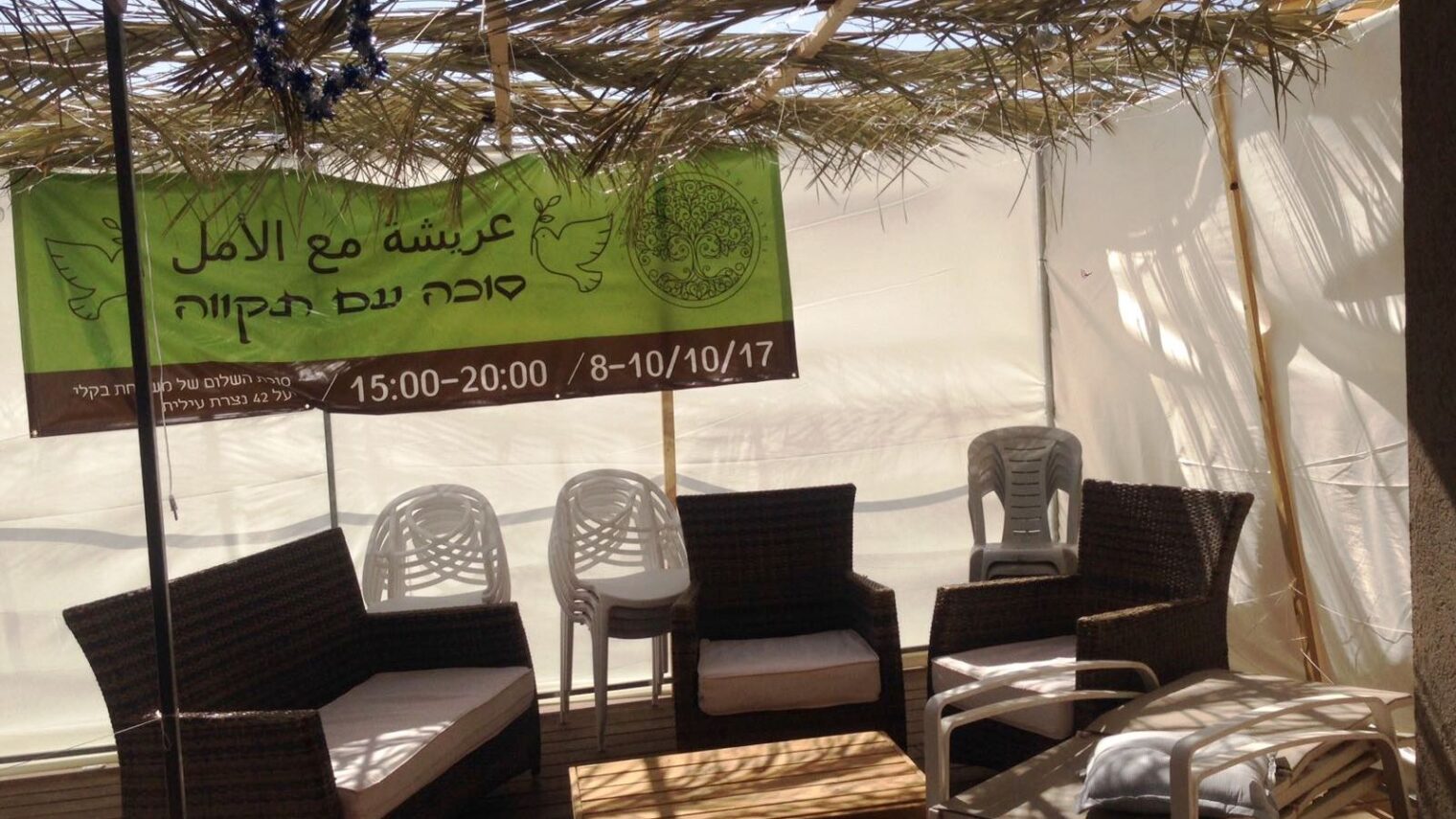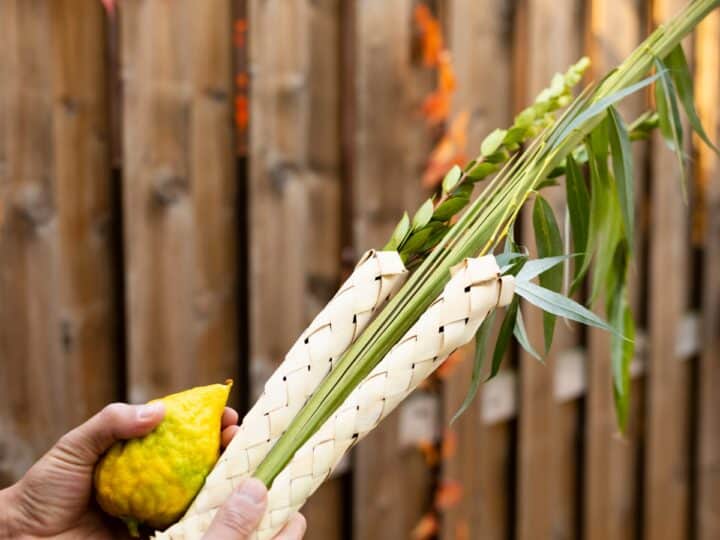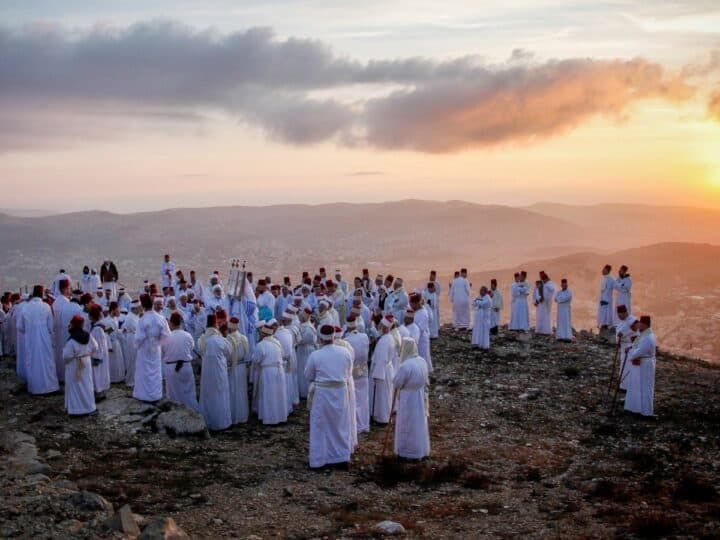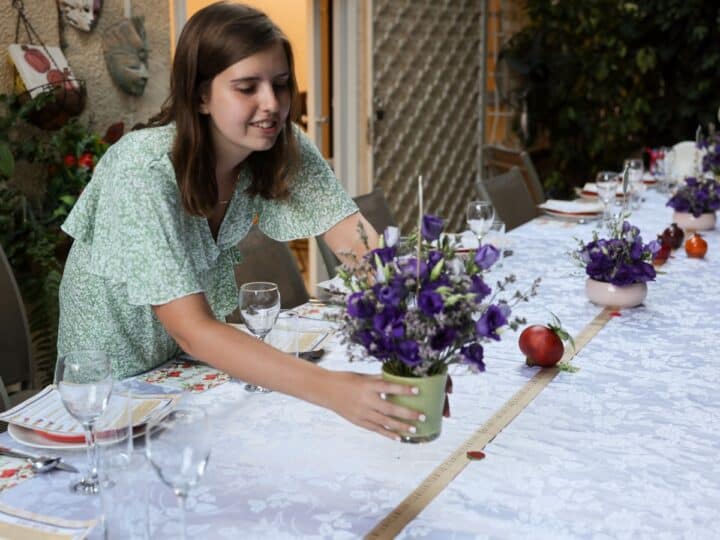Dentists Khalil and Reem Bakly, a young Arab-Israeli couple in Upper Nazareth, built a 9-by-3-meter sukkah on their deck and invited the general public to come for kosher and Arab cuisine, prayer, live music and discussions on the three intermediate days of the Sukkot holiday, October 8-10.
Calling their unusual construction the Sukkah of Hope, the Baklys issued an invitation in Arabic and Hebrew. “We believe that respect is mutual, that listening and understanding are the basis for a shared existence,” they wrote.
Why would a Muslim couple build a sukkah, a temporary outdoor booth, in keeping with the biblical commandment to celebrate the week-long Jewish Feast of Tabernacles?
Dr. Khalil Bakly, 45, says most of the patients and professional staff in both his Netanya and Nazareth offices are Jewish, and he had long admired the concept of Sukkot.
“Towards the Sukkot holiday we are used to masses of Israeli people celebrating this feast by building a sukkah,” he explains. “The sukkah comes to symbolize that materialism is not a principal issue, and therefore we are not measured by the strength of the walls in our houses, but rather by the strength of our hearts.”
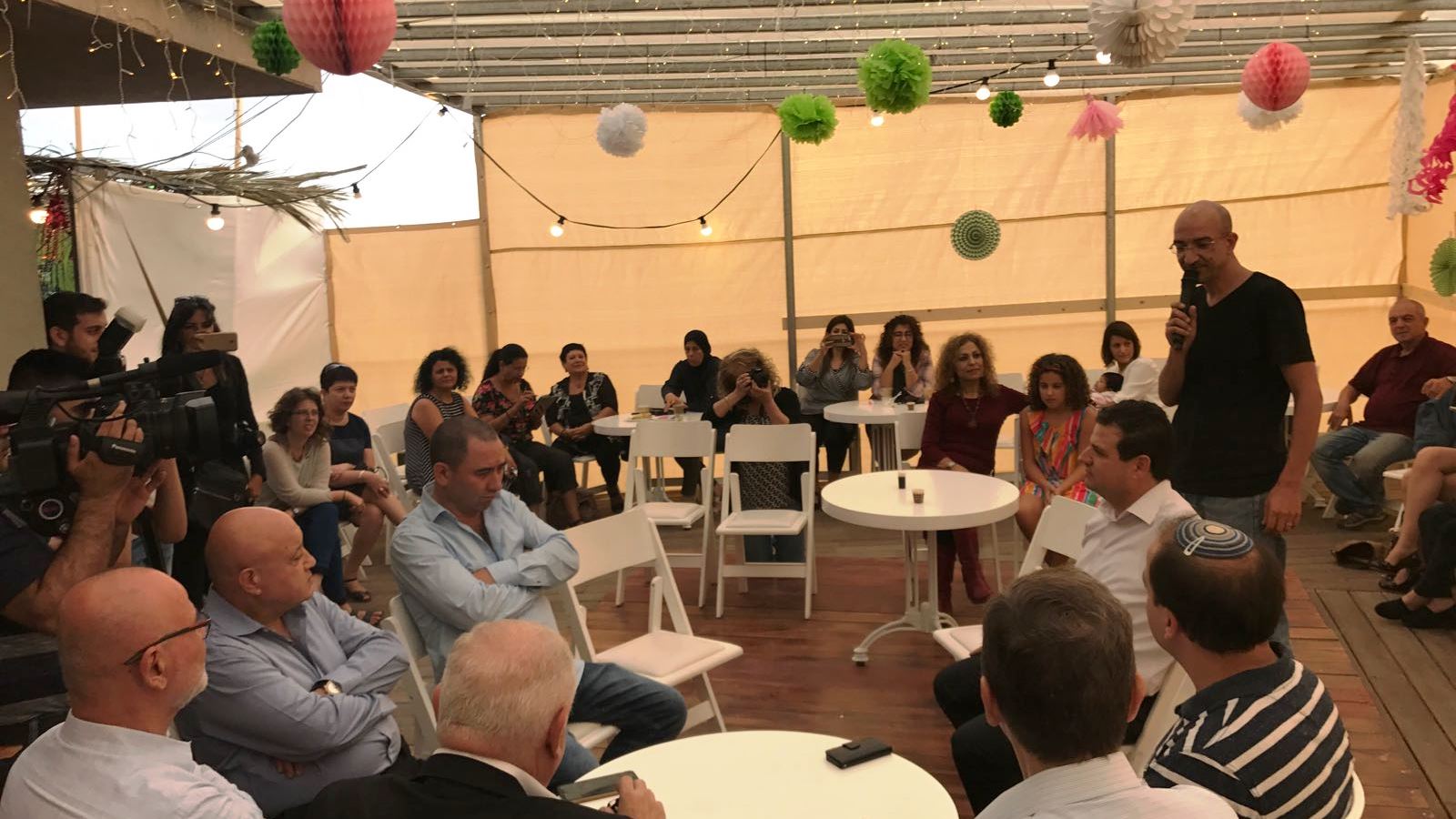
Realizing that his Jewish and his Arab acquaintances rarely have an opportunity to meet one another, and may be hesitant to do so, he and his wife decided to provide such an opportunity. Reem Bakly, a maxillofacial surgeon at Haifa’s Carmel Medical Center, currently is on maternity leave after giving birth to the couple’s third child in August.
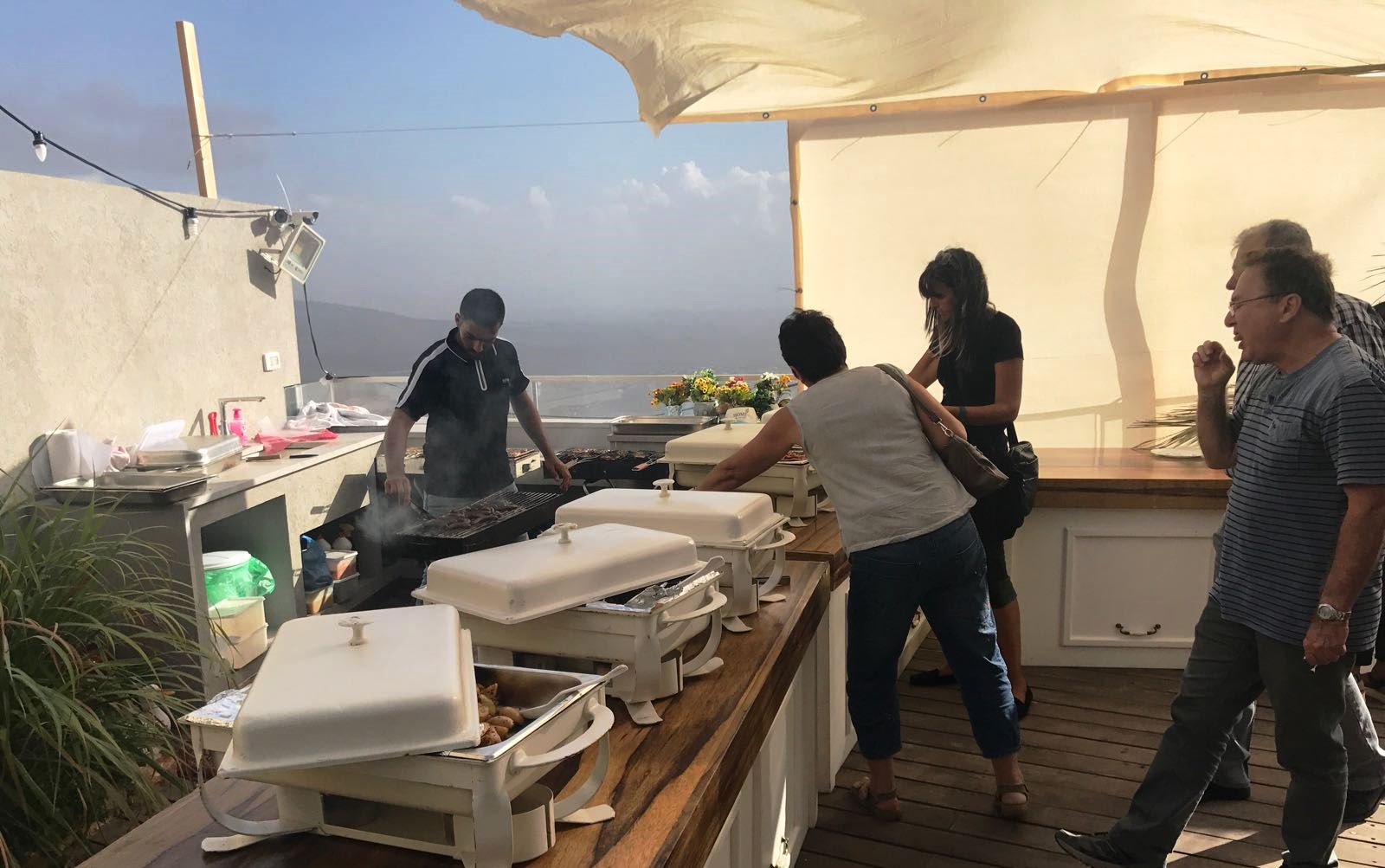
The Baklys placed ads in local newspapers in Netanya and Upper Nazareth and asked Bakly’s Netanya office manager, an Orthodox Jew, to oversee the construction of the sukkah to assure it was built according to regulation. About two dozen Arab and Jewish friends and staff members volunteered to help. The Baklys also hired caterers, decorators and designers.
“We didn’t do a head count of guests,” Bakly tells ISRAEL21c, “but the chef who prepared the food estimated that we had between 1,200 and 1,500 over the course of the three days! Many were from Netanya and Upper Nazareth, and we had visitors from all over Israel — Jerusalem, Rishon LeZion, Rehovot, Ness Ziona, Haifa, Tivon – who heard me interviewed in the media and decided to come and see what we’re doing.”
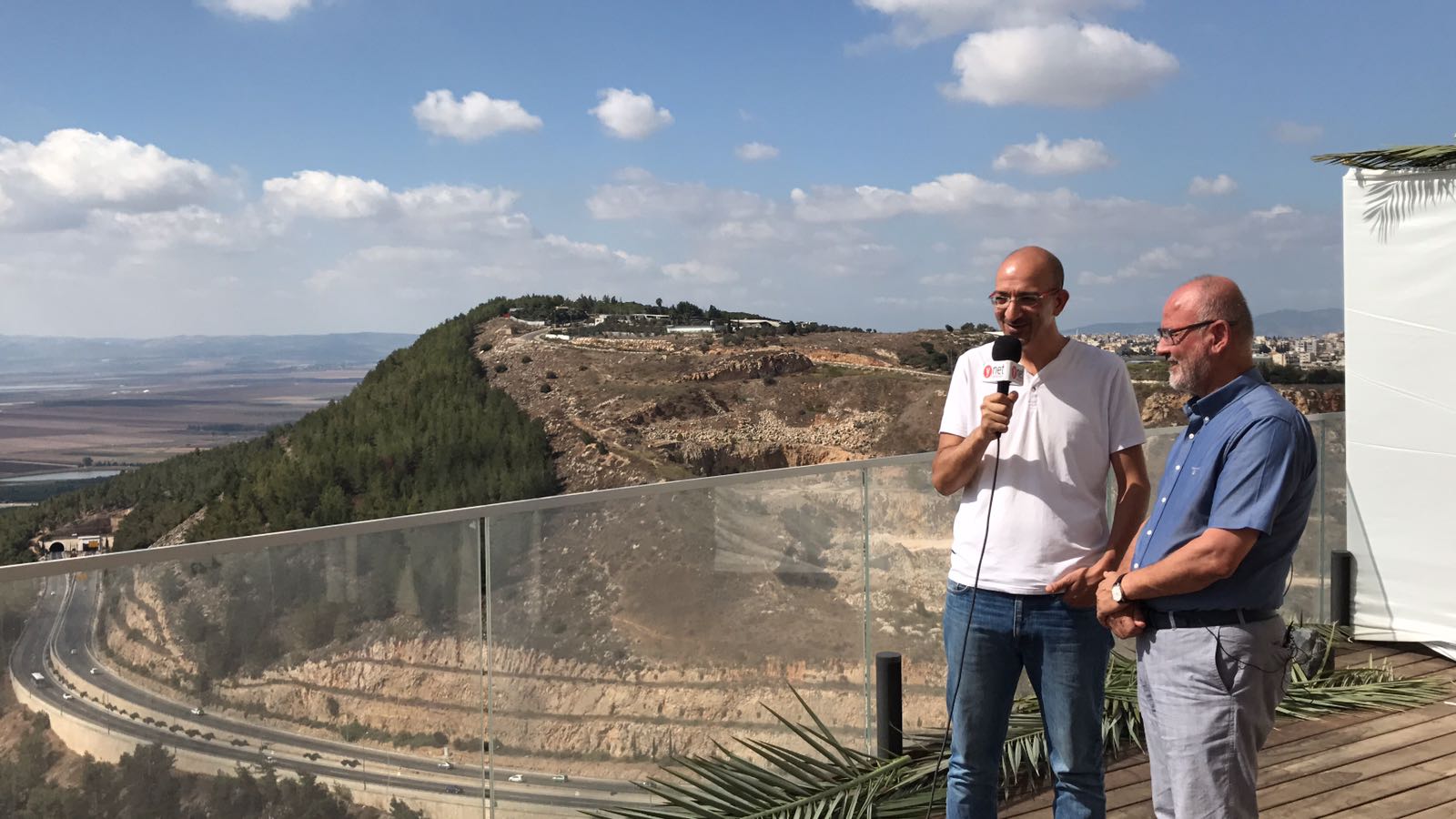
The “open sukkah” event included open dialogue sessions on topics Bakly set ahead of time, including education, women’s issues and health.
“Over more than 20 years as a dentist in both communities I see every day that we have a lot of social problems in common as citizens of Israel, and I think it’s the right place and the right time to put our hands together to solve them,” he said.
Authors, actors, attorneys, physicians, journalists and educators were among the guests and discussion leaders. Upper Nazareth’s Jewish mayor, two Arab deputy mayors and other municipal officials of both faiths sat together in the sukkah on October 8.
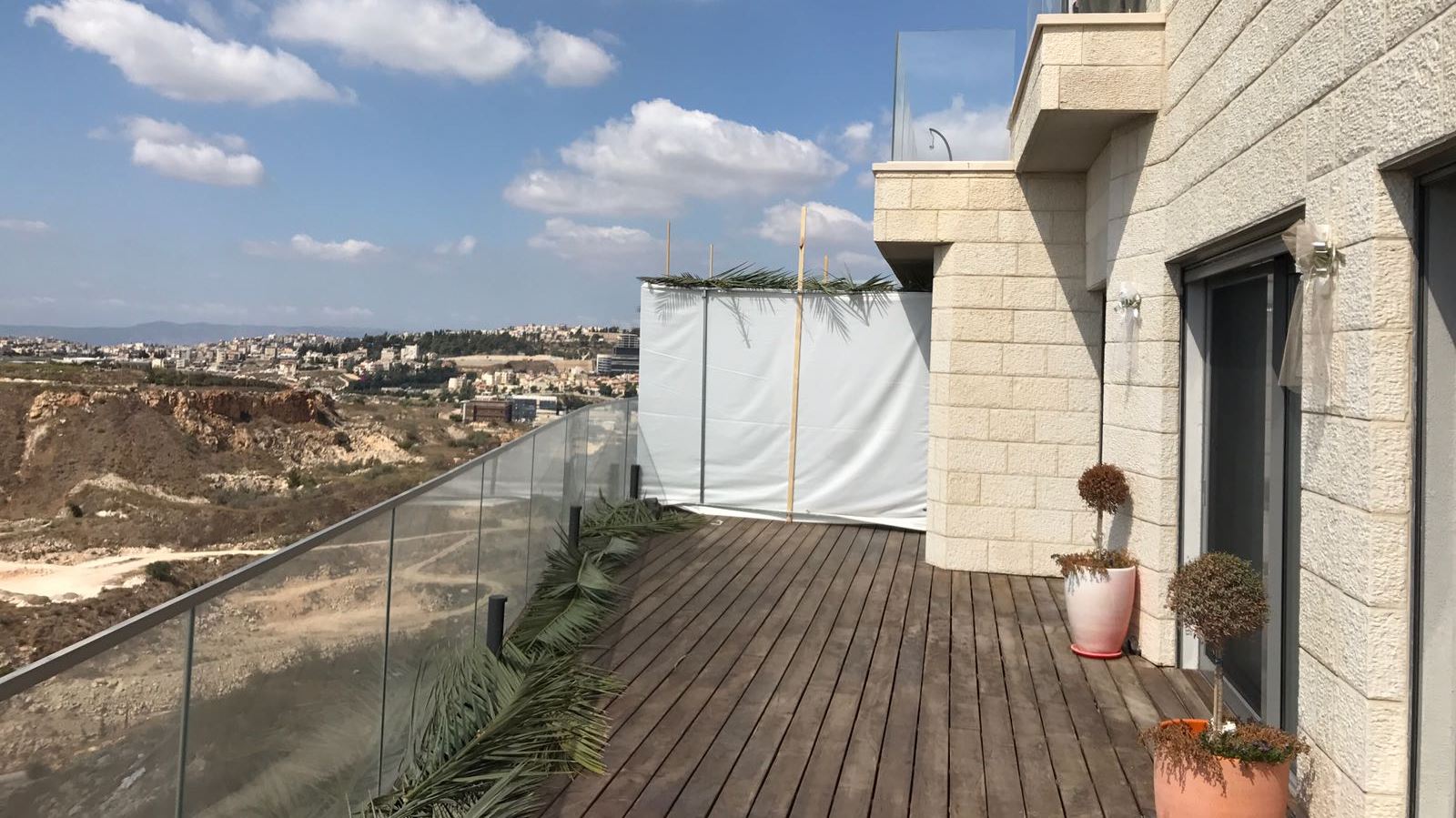
Bakly told ISRAEL21c he prays five times a day but does not regularly go to a mosque and prefers to look at people as human beings rather than as members of a particular sector.
“All the religions command people to love each other and respect each other from the heart. What is important is that we’re human,” says Bakly. “I have Christian and Jewish friends and we all respect one another. We should look at what each does to help his community, not his religion or where he comes from or the color of his skin.”
The Baklys plan to build their sukkah again next year. “I hope when I build it I will have more people to help me and stand with me and I hope the municipality will partner with me,” said Khalil Bakly. “I believe there is nothing like a sukkah to accommodate everyone.”




